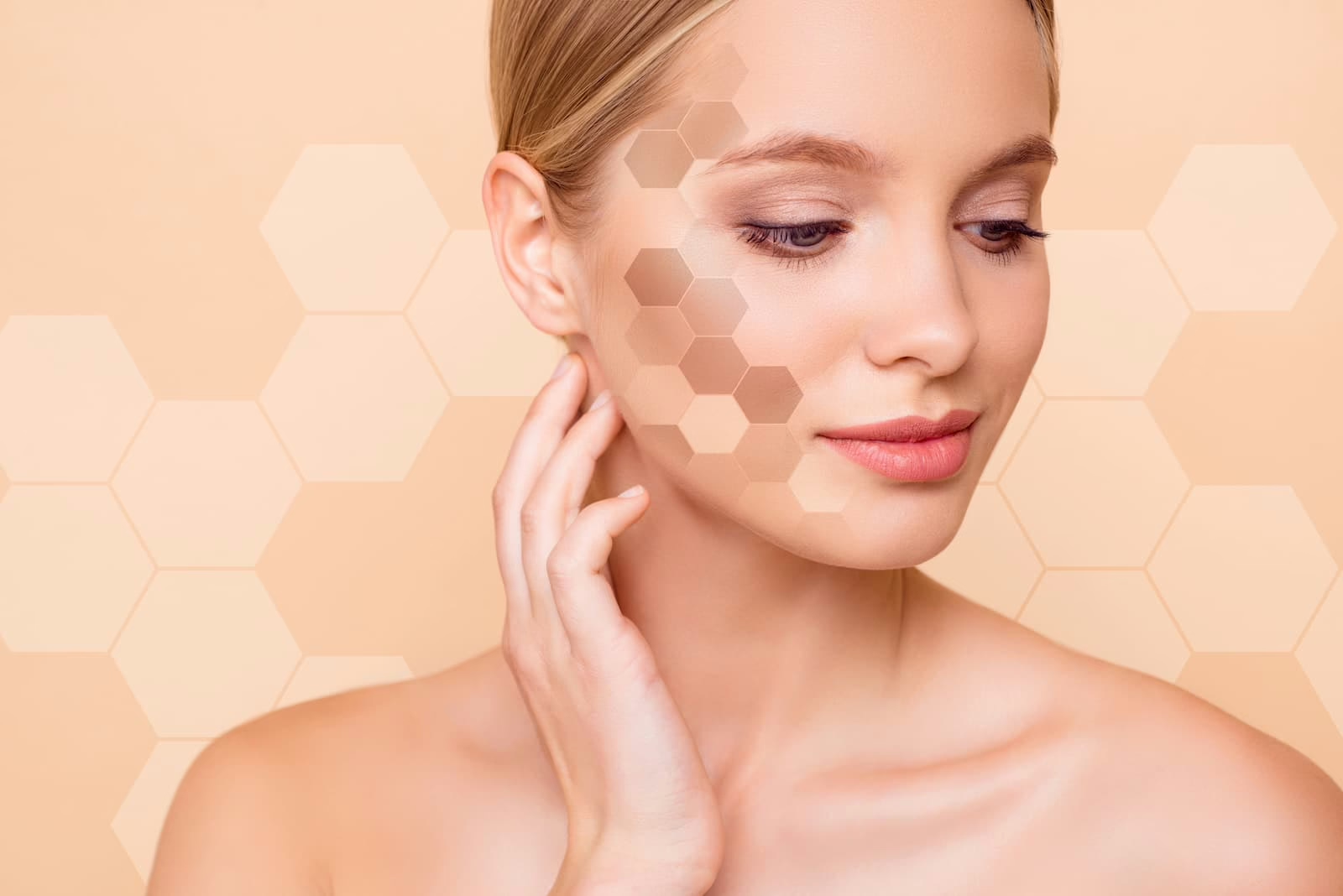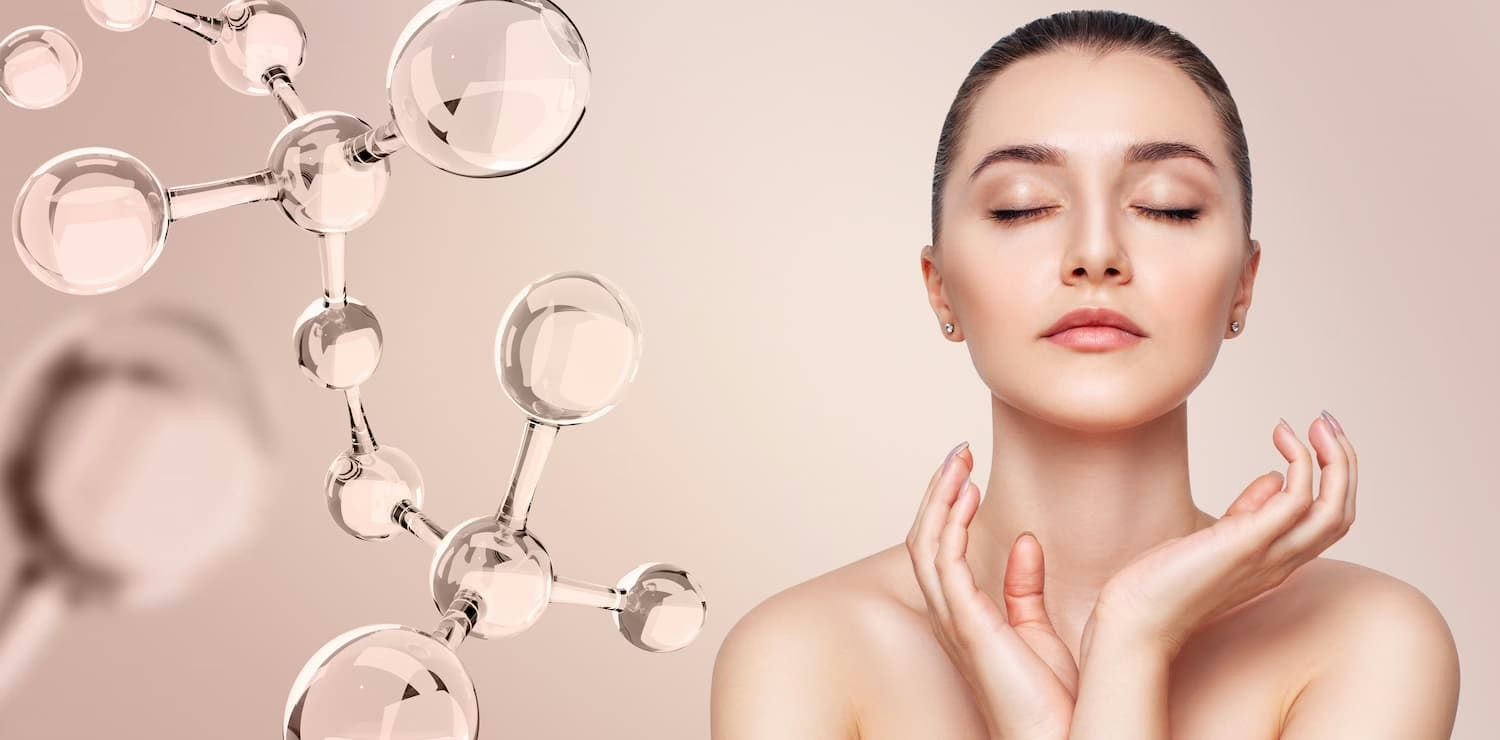Collagen is one of the most important proteins in the body, responsible for maintaining the structure, elasticity, and hydration of the skin. As we age, collagen production slows down, leading to sagging skin, wrinkles, and loss of firmness. Understanding how collagen works and how to preserve it can help maintain a youthful, glowing complexion.
Why Collagen Declines Over Time
Collagen makes up about 75 percent of the skin’s structure, providing strength and elasticity. In early adulthood, the body produces collagen efficiently, keeping skin smooth and firm. However, as early as the mid-20s, collagen production begins to decrease by about 1 percent each year. By the time a person reaches their 40s, collagen loss becomes more noticeable, leading to fine lines, loss of volume, and decreased skin resilience.
Several factors accelerate collagen breakdown:
- Sun Exposure – Ultraviolet (UV) rays penetrate deep into the skin, breaking down collagen fibers and reducing elasticity.
- Poor Diet – Diets high in processed foods, sugar, and alcohol contribute to inflammation and collagen degradation.
- Smoking – Nicotine restricts blood flow to the skin, depriving it of oxygen and essential nutrients, which leads to faster collagen loss.
- Stress – Chronic stress increases cortisol levels, which can interfere with collagen synthesis and speed up skin aging.
- Environmental Pollution – Exposure to pollutants generates free radicals, which attack collagen and weaken the skin’s structure.
Treatments That Stimulate Collagen Production
While collagen loss is inevitable, several advanced aesthetic treatments can help stimulate natural collagen production and restore a more youthful appearance.
Morpheus8: Microneedling with Radiofrequency
Morpheus8 is a revolutionary treatment that combines microneedling with radiofrequency energy to remodel the skin from within. Tiny needles create controlled micro-injuries in the skin, triggering collagen and elastin production. The added radiofrequency energy tightens the skin, improving elasticity and reducing the appearance of fine lines, wrinkles, and sagging.
Microneedling
Traditional microneedling, also known as collagen induction therapy, involves tiny needles that create micro-injuries in the skin. This stimulates the body’s natural healing process, encouraging new collagen and elastin fibers to form. Microneedling is highly effective for improving skin texture, reducing scarring, and enhancing overall skin tone.
Platelet-Rich Plasma (PRP) Therapy
PRP therapy uses the body’s own healing properties to promote collagen production. A small amount of blood is drawn and processed to extract platelet-rich plasma, which is then injected or applied to the skin after microneedling. PRP boosts cell regeneration, enhances skin hydration, and improves skin elasticity.
Radiofrequency Skin Tightening
Radiofrequency energy heats the deeper layers of the skin, stimulating collagen remodeling and tightening loose or sagging skin. This treatment is ideal for individuals looking to improve skin firmness without invasive procedures.
Each of these treatments encourages the body to regenerate collagen naturally, leading to long-term improvements in skin texture and elasticity.
How to Maintain Collagen Levels Naturally
Collagen production can be supported with proper skincare, nutrition, and healthy lifestyle choices.
1. Prioritize Sun Protection
Wearing broad-spectrum sunscreen daily is one of the most effective ways to prevent collagen breakdown. UV rays accelerate skin aging, so applying SPF 30 or higher helps protect the skin from damage.
2. Incorporate Collagen-Boosting Skincare
Using medical-grade skincare products that contain ingredients like retinol, peptides, and vitamin C can help stimulate collagen production. Retinol promotes cell turnover, peptides strengthen the skin barrier, and vitamin C is essential for collagen synthesis.
3. Eat a Collagen-Rich Diet
A balanced diet that includes collagen-building nutrients helps maintain firm, youthful skin. Some of the best foods for collagen production include:
- Vitamin C-rich foods – Citrus fruits, berries, bell peppers, and leafy greens help stimulate collagen synthesis.
- Protein sources – Lean meats, fish, eggs, and bone broth provide essential amino acids needed for collagen formation.
- Antioxidant-rich foods – Green tea, dark chocolate, and nuts help fight free radicals that break down collagen.
4. Stay Hydrated
Drinking plenty of water keeps the skin hydrated and supports collagen function. Hyaluronic acid, a natural substance in the skin, retains moisture and works alongside collagen to maintain a plump, youthful look.
5. Get Enough Sleep
During deep sleep, the body repairs and regenerates skin cells, including collagen. Getting at least seven to eight hours of sleep each night helps support natural skin renewal.
6. Avoid Smoking and Excess Alcohol
Smoking damages collagen fibers and accelerates skin aging. Alcohol dehydrates the skin, leading to loss of elasticity. Avoiding these habits helps maintain long-term skin health.
Achieve Firmer, Younger-Looking Skin at Mirror Mirror Med Spa
Collagen is the foundation of youthful skin, but maintaining its levels requires the right combination of treatments, skincare, and healthy lifestyle habits. Advanced treatments like Morpheus8, microneedling, PRP therapy, and radiofrequency skin tightening can restore collagen production and enhance skin firmness.
Mirror Mirror Med Spa in Los Angeles offers cutting-edge, non-invasive procedures designed to stimulate collagen and improve skin quality.
Ready to take the next step in preserving youthful, radiant skin?
Book a Consultation Today and discover the best collagen-boosting treatment for your skin.


